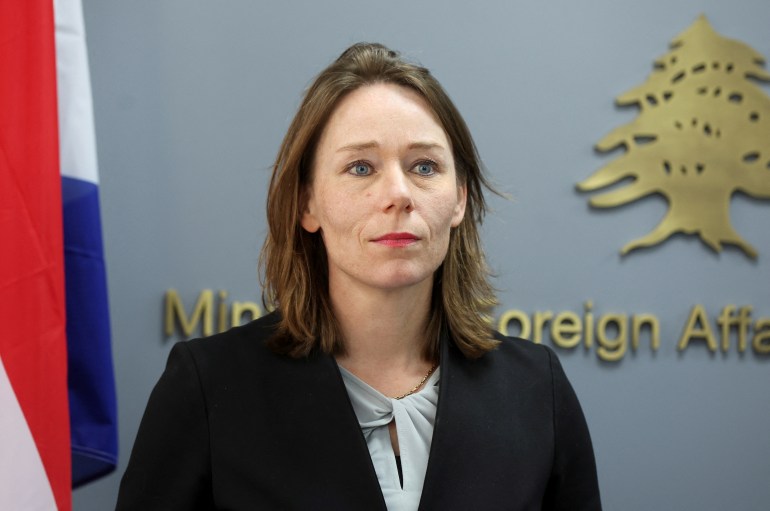In a memo written after the Netherlands joined more than a dozen countries in pausing funding to UNRWA following Israeli claims of links to Hamas, foreign ministry officials stressed the need for the UN agency to continue its work.
“Humanitarian assistance and basic services provided by UNRWA to Gaza and the wider region must be maintained at this stage of the conflict. Other organisations are not adequately equipped for this purpose, including logistical capacities. Further regional destabilisation due to loss of UNRWA capacities must be prevented,” officials in the ministry’s human rights department wrote in the memo to Foreign Minister Hanke Bruins Slot on February 2.
Bruins Slot, a member of the centre-right Christian Democratic Appeal party, expressed agreement with her colleagues in a hand-written note.
“Agreed! Touches whole region that is already unstable,” she wrote on the memo.

Describing myriad competing priorities, officials warned that Amsterdam faced a “precarious” balance in deciding whether to fund UNRWA.
“The balance between the desired political signal, the rapidity of the UN investigations, humanitarian needs, no further destabilisation in the region, the continuation of balanced contacts with both Israel and the Palestinians and the reallocation of funds is very precarious,” the memo said.
“Too long a delay or suspension of already committed support could lead to serious disruptions in UNWRA’s operational capacities resulting in considerably great human suffering,” the memo continued, to which Bruins Slot added a hand-written note expressing her agreement.
“In addition, high humanitarian needs could lead to social disruption and regional escalation, which also poses a risk to Israel’s security. It is also politically relevant to take into account the ruling of the International Court of Justice on adequate humanitarian aid.”
Al Jazeera obtained the memo, which has not been published previously, via a freedom of information request with the Dutch foreign ministry.

Despite the concerns raised within the upper levels of the Dutch government, the Netherlands has yet to resume funding to the UNRWA five months after announcing a pause in response to Israeli claims that some agency staff participated in Hamas’s October 7 attacks on southern Israel.
An investigation led by French former foreign minister Catherine Colonna concluded last month that Israel had not provided evidence to support its allegations of UNRWA involvement in the assault.
At least half of the 16 countries that suspended funding in response to Israel’s claims, including Australia, Canada, Finland, Germany, Italy, Japan, and Sweden, have since reinstated their support.
When contacted for comment, the Netherlands’ foreign ministry referred Al Jazeera to a letter it sent to parliament last month detailing its position on funding UNRWA.
In the letter, the ministry said it had already provided its annual funding to UNRWA in January, but future requests would be considered based on the agency’s implementation of Colonna’s recommendations to strengthen its neutrality and the outcome of an upcoming report by the UN’s Office of Internal Oversight Services (OIOS).
OIOS said in an update to its investigation last month that it was probing 14 UNRWA staff members over their alleged links to the October 7 attacks, after dropping inquires into five others due to lack of evidence.
In the February memo, officials recommended that funding be “reconsidered in due course” based on the outcome of the OIOS report, the establishment of terms of reference to investigate risk management at UNRWA, and a “plan of action, including commitment from UNRWA to (re)examine staff”.
Established in 1949, the UNRWA employs about 30,000 people in the Palestinian territories, Jordan, Lebanon and Syria to provide essential services including food, education and healthcare.
The UN agency last week announced it would have to suspend food distribution in Gaza’s southern city of Rafah, where Israel’s military is conducting a ground offensive and air strikes, due to a lack of supplies and security risks.